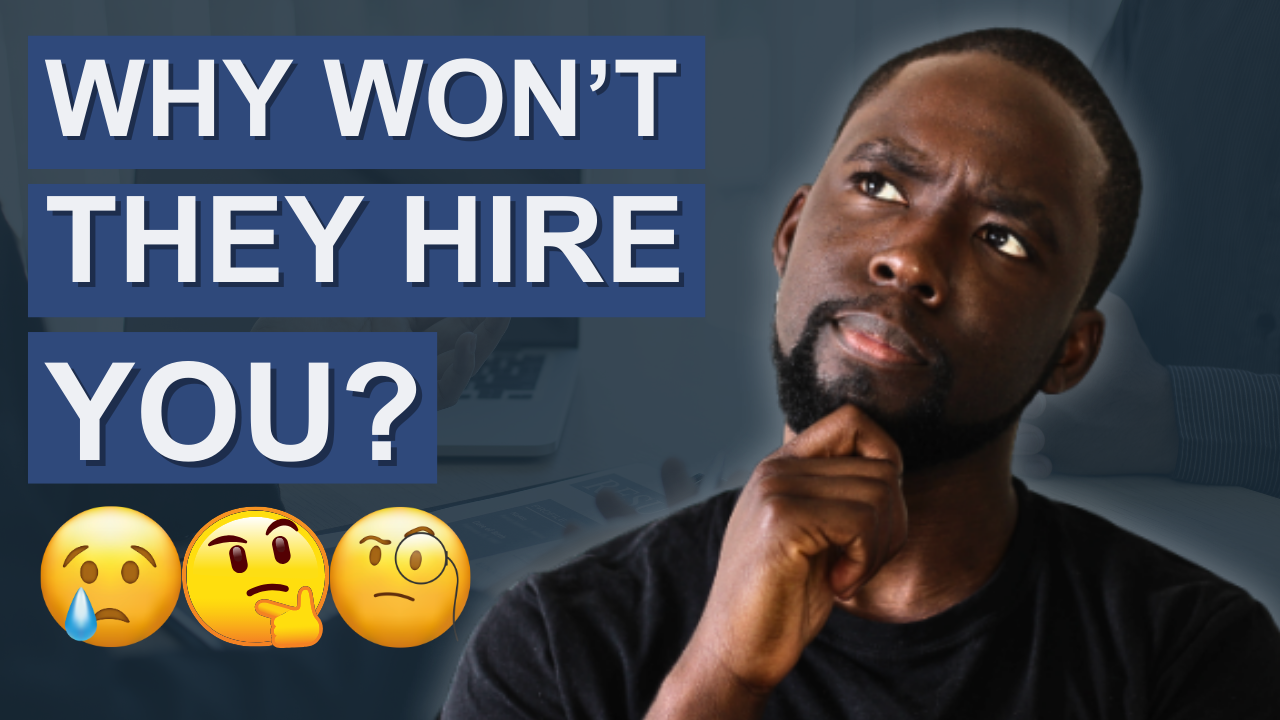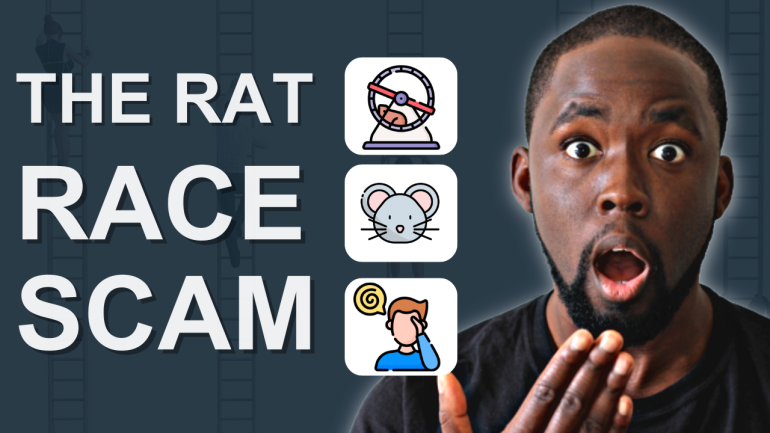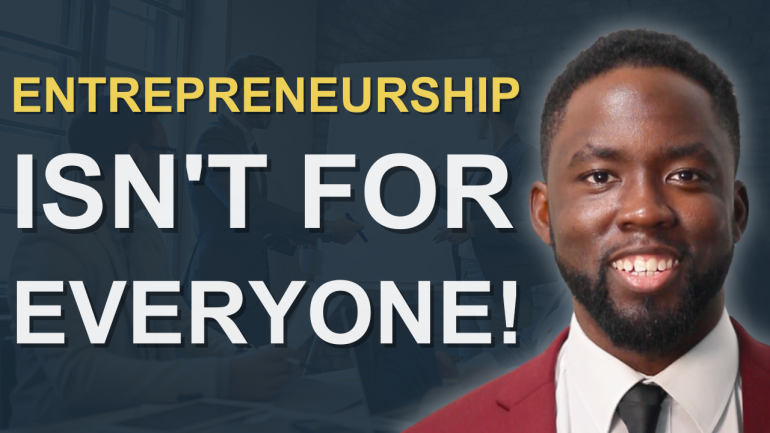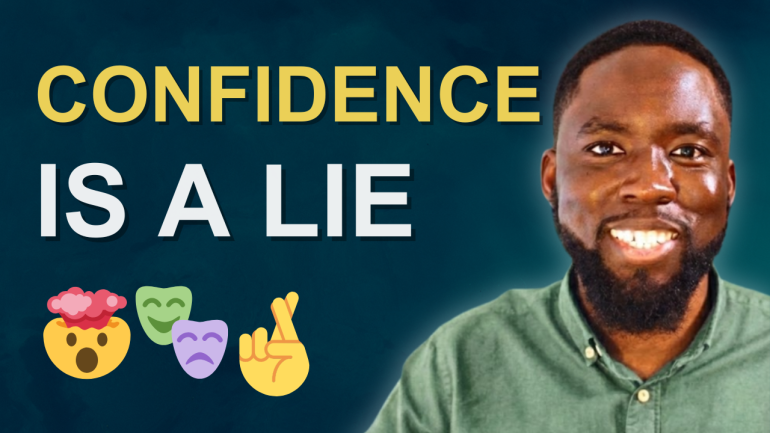Why You’re Not Getting Hired in 2025 (And What to Do About It)
Introduction
Have you ever found yourself sending countless applications, tweaking your CV over and over, and tailoring cover letters until you feel like a copywriter…
…Only to hear nothing back? If that’s you, you’re not alone.
I’ve been there too. I remember a time early in my career when I thought the formula was simple: polish the CV, write a compelling cover letter, and wait for the interviews to roll in. But silence became the norm. At first, I thought it was me, that maybe I lacked the skills or experience. Over time, I realised something bigger was at play.
The hiring landscape has shifted dramatically. It is not just about effort or work ethic anymore. The system has changed, and unless you adapt, you’ll be left behind.
In this article, I want to break down why you’re not getting hired in 2025 and, more importantly, what you can do about it. My aim is not to discourage you but to equip you with a new mindset and a set of practical strategies to navigate today’s job market with confidence.
1. The Market Has Changed, It Is Not You
When rejections pile up, it’s tempting to think you’re the problem. But often, it’s the system.
Over the past few years, we’ve seen a perfect storm: economic mismanagement, shifting government policies, global crises, and the rapid acceleration of technology. In the UK alone, in the month of July there were 164,000 fewer jobs available in one year. Some industries, such as IT and education, are gaining roles, while others are shrinking rapidly.
Layer on top of that the cost pressures businesses face, rising wages, higher taxes, and overheads, and suddenly employers are cutting roles, outsourcing overseas, or leaning on automation.
I’ve seen this first-hand as a programme management consultant. Contracts I once considered stable disappeared almost overnight.
The lesson is this: it is not always about your capability. It is about context. And that context is forcing us to play a different game.
2. Technology Is Reshaping Every Role
We cannot ignore it. AI and automation are rewriting the rules. Roles that existed five years ago are either obsolete or radically transformed.
When I work with clients on digital transformation programmes, I see the same pattern. Every role, in some shape or form, now involves technology. Whether you’re a teacher using digital platforms, a consultant managing remote teams, or a finance professional automating reports, tech is unavoidable.
This does not mean doom and gloom. It means adaptability is your greatest currency.
Ask yourself:
- Am I actively building digital skills relevant to my industry?
- Can I demonstrate how I’ve used tech to solve problems or deliver results?
The professionals thriving today are those who see technology not as a threat but as a tool. I personally embraced AI tools not as a shortcut, but as a way to boost productivity, refine communication, and test ideas quickly.
Action point: Identify one digital skill you need to strengthen this year and commit to mastering it. Do not wait until you’re forced to pivot.
3. The CV Gap, Why You’re Overlooked
Here is a hard truth: many CVs are still written like job diaries. List of roles. List of tasks. Generic responsibilities.
But in today’s climate, that does not cut it. Recruiters and employers want to see impact.
This is where the PAR framework, Problem, Action, Result, comes in. I’ve used this countless times when helping professionals improve their CVs. Instead of saying “Managed a team of five”, you might say:
- Problem: The team lacked direction, and deadlines were slipping.
- Action: Introduced MSP methodologies, daily stand-ups, and Microsoft Place for project tracking.
- Result: Increased delivery efficiency by 30%, saving the client £250k annually.
That is a tangible story of value. And it makes you stand out.
Action point: Audit your CV. Does it communicate results or just responsibilities?
4. From Job Seeker to Strategist
This is perhaps the biggest shift required. Too many professionals approach the job market reactively, waiting to be picked. But the winners think like strategists.
What does that mean?
- Job seekers ask: Do I fit this job description?
- Strategists ask: What problems can I solve, and how do I prove it?
The difference is subtle but powerful. When I made this shift myself, I stopped thinking of roles as boxes I had to squeeze into. Instead, I started positioning myself as a consultant who could identify problems and deliver outcomes.
Strategists also do not rely solely on applications. They build relationships, connect with recruiters, and engage directly with decision-makers.
Action point: Shift your mindset. Stop waiting to be chosen. Start creating opportunities.
5. Relentless Action Is Non-Negotiable
I’ll be blunt: job hunting in 2025 is not a side activity. It is a full-time project.
I’ve seen professionals spending double the time searching compared to just a few years ago. Burnout is real. But those who treat it with discipline, as if it were their own side hustle, are the ones who break through.
This means:
- Daily outreach to recruiters and peers.
- Consistent learning and upskilling.
- Tailoring every application.
- Following up with persistence.
It is not glamorous, but it works eventually… I often tell people: relentlessness beats perfection. I’ve landed opportunities not because I was the smartest in the room, but because I was consistent and visible.
Action point: Design a routine around your job search. Track your applications. Block time for networking. Treat it like a project with milestones and goals.
Bonus Tip: Humanise Your Value
In an age of AI-generated everything, humanity is your differentiator.
Yes, tools like ChatGPT can polish language, but recruiters are craving authenticity. They want to sense your character, not just your credentials.
When I coach clients, I encourage them to inject personality into their LinkedIn profiles, their conversations, and even their CVs. Not gimmicks, but real, human stories of challenges faced, lessons learned, and results delivered.
That human touch is what makes you memorable.
Conclusion
The job market in 2025 is not easy. The rules have changed. But so can you.
Remember these key takeaways:
- The system is shifting, adapt to it.
- Tech is everywhere; embrace it.
- Results matter more than responsibilities; prove your value.
- Stop being a job seeker, become a strategist.
- Relentless action creates momentum. Stay consistent.
The future belongs to those who adapt, communicate their value, and refuse to wait passively for opportunity.
So, I’ll leave you with this question: Are you going to wait to be chosen, or will you choose to step up and lead your own career?
Understand. Reach. Expand.
Peace.







